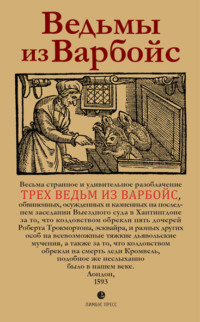 полная версия
полная версияThe Arabian Nights: Their Best-known Tales
The sultan, after the reception the princess had given him, was very anxious to know how she had passed the second night, and therefore went into her chamber as early as the morning before. After the same caresses he had given her the former morning, he bade her good-morrow. "Well, daughter," said he, "are you in a better humour than yesterday?" Still the princess was silent, and the sultan, perceiving her to be in greater confusion than before, doubted not that something very extraordinary was the cause; but provoked that his daughter should conceal it, he said to her in a rage, with his sabre in his hand: "Daughter, tell me what is the matter, or I will cut off your head immediately."
The princess, more frightened at the tone of the enraged sultan than at the sight of the drawn sabre, at last broke silence, and said with tears in her eyes: "My dear father and sultan, I ask your majesty's pardon if I have offended you, and hope that out of your goodness you will have compassion on me."
After this preamble, which appeased the sultan, she told him what had happened to her in so moving a manner, that he, who loved her tenderly, was most sensibly grieved. She added: "If your majesty doubts the truth of this account, you may inform yourself from my husband, who will tell you the same thing."
The sultan immediately felt all the uneasiness so surprising an adventure must have given the princess. "Daughter," said he, "you are much to blame for not telling me this yesterday, since it concerns me as much as yourself. I did not marry you to make you miserable, but that you might enjoy all the happiness you might hope for from a husband, who to me seemed agreeable to you. Efface all these troublesome ideas from your memory; I will take care that you shall have no more such disagreeable experiences."
As soon as the sultan had returned to his own apartment, he sent for the grand vizier: "Vizier," said he, "have you seen your son, and has he told you anything?" The vizier replied: "No." The sultan related all the circumstances of which the princess had informed him, and afterward said: "I do not doubt but that my daughter has told me the truth; but nevertheless I should be glad to have it confirmed by your son, therefore go and ask him how it was."
The grand vizier went immediately to his son, communicated what the sultan had told him, and enjoined him to conceal nothing, but to relate the whole truth. "I will disguise nothing from you, father," replied the son, "for indeed all that the princess has stated is true. Yet I must tell you, that all these experiences do not in the least lessen those sentiments of love and gratitude I entertain for her; but I must confess, that notwithstanding all the honour that attends marrying my sovereign's daughter, I would much rather die than continue in so exalted an alliance, if I must undergo much longer what I have already endured. I do not doubt but that the princess entertains the same sentiments, and that she will readily agree to a separation which is so necessary both for her repose and mine. Therefore, father, I beg, by the same tenderness which led you to procure me so great an honour, to obtain the sultan's consent that our marriage may be declared null and void."
Notwithstanding the grand vizier's ambition to have his son allied to the sultan, the firm resolution he saw he had formed to be separated from the princess caused the father to give his majesty a full account of what had passed, begging him finally to give his son leave to retire from the palace, alleging it was not just that the princess should be a moment longer exposed to so terrible a persecution upon his son's account.
The grand vizier found no great difficulty to obtain what he asked, as the sultan had determined upon it already; orders were given to put a stop to all rejoicings in the palace and town, and expresses despatched to all parts of his dominions to countermand his first orders; and in a short time, all merry-making ceased.
This sudden change gave rise both in the city and kingdom to various speculations and inquiries; but no other account could be given of it, except that both the vizier and his son went out of the palace much dejected. Nobody but Aladdin knew the secret, who rejoiced at the happy success procured by his lamp. Neither the sultan nor the grand vizier, who had forgotten Aladdin and his request, had the least thought that he had any concern in the enchantment which caused the dissolution of the marriage.
Aladdin waited till the three months were completed, which the sultan had appointed for the consummation of the marriage between the Princess Badroulboudour and himself; and the next day sent his mother to the palace, to remind the sultan of his promise.
The widow went to the palace, and stood in the same place as before in the hall of audience. The sultan no sooner cast his eyes upon her than he knew her again, remembered her business, and how long he had put her off: therefore, when the grand vizier was beginning to make his report, the sultan interrupted him, and said: "Vizier, I see the good woman who made me the present of jewels some months ago; forbear your report, till I have heard what she has to say." The vizier, looking about the divan, perceived the tailor's widow, and sent the chief of the mace-bearers to conduct her to the sultan.
Aladdin's mother came to the foot of the throne, prostrated herself as usual, and when she rose, the sultan asked her what she would have. "Sir," said she, "I come to represent to your majesty, in the name of my son, Aladdin, that the three months, at the end of which you ordered me to come again, are expired; and to beg you to remember your promise."
The sultan, when he had fixed a time to answer the request of this good woman, little thought of hearing any more of a marriage, which he imagined would be very disagreeable to the princess; so this summons for him to fulfil his promise was somewhat embarrassing; he declined giving an answer till he had consulted his vizier, and signified to him the little inclination he had to conclude a match for his daughter with a stranger, whose rank he supposed to be very mean.
The grand vizier freely told the sultan his thoughts, and said to him: "In my opinion, sir, there is an infallible way for your majesty to avoid a match so disproportionate, without giving Aladdin, were he known to your majesty, any cause of complaint; which is, to set so high a price upon the princess that, however rich he may be, he cannot comply with it. This is the only way to make him desist from so bold an undertaking."
The sultan, approving of the grand vizier's advice, turned to the tailor's widow and said to her: "Good woman, it is true sultans ought to abide by their words, and I am ready to keep mine, by making your son happy in marriage with the princess, my daughter. But as I cannot marry her without some further valuable consideration from your son, you may tell him, I will fulfil my promise as soon as he shall send me forty trays of massy gold, full of the same sort of jewels you have already made me a present of, and carried by the like number of black slaves, who shall be led by as many young and handsome white slaves, all dressed magnificently. On these conditions I am ready to bestow the princess, my daughter, upon him; therefore, good woman, go and tell him so, and I will wait till you bring me his answer."
Aladdin's mother prostrated herself a second time before the sultan's throne, and retired. On her way home, she laughed within herself at her son's foolish imagination. "Where," said she, "can he get so many large gold trays, and such precious stones to fill them? Must he go again to that subterranean abode and gather them off the trees? and where will he get so many such slaves as the sultan requires? It is altogether out of his power, and I believe he will not be much pleased with my embassy this time." When she came home, full of these thoughts, she said to her son: "Indeed, child, I would not have you think any farther of your marriage with the princess. The sultan received me very kindly, and I believe he was well inclined to you; but if I am not much deceived the grand vizier has made him change his mind." She then gave her son an exact account of what the sultan had said to her, and the conditions on which he consented to the match. Afterward she said to him: "The sultan expects your answer immediately; but," continued she, laughing, "I believe he may wait long enough."
"Not so long, mother, as you imagine," replied Aladdin; "the sultan is mistaken, if he thinks by this exorbitant demand to prevent my entertaining thoughts of the princess. I expected that he would have set a higher price upon her incomparable charms. His demand is but a trifle to what I could have done for her. But while I think of satisfying his request, go and get something for our dinner, and leave the rest to me."
As soon as his mother was gone out, Aladdin took the lamp, and rubbing it, the genie appeared, and offered his service as usual. "The sultan," said Aladdin to him, "gives me the princess his daughter in marriage; but demands first, forty large trays of massy gold, full of the fruits of the garden from whence I took this lamp; and these he expects to have carried by as many black slaves, each preceded by a young handsome white slave, richly clothed. Go, and fetch me this present as soon as possible, that I may send it to him before the divan breaks up." The genie told him his command should be immediately obeyed, and disappeared.
In a little time afterward the genie returned with forty black slaves, each bearing on his head a heavy tray of pure gold, full of pearls, diamonds, rubies, emeralds, and every sort of precious stones, all larger and more beautiful than those formerly presented to the sultan. Each tray was covered with silver tissue, embroidered with flowers of gold: these, together with the white slaves, quite filled the house, which was but a small one, the little court before it, and a small garden behind. The genie asked if he had any other commands, and Aladdin telling him that he wanted nothing further, he disappeared.
When Aladdin's mother came from market, she was much surprised to see so many people and such vast riches. As soon as she had laid down her provisions, she was going to pull off her veil; but her son prevented her, and said: "Mother, let us lose no time; before the sultan and the divan rise, I would have you return to the palace with this present as the dowry demanded for the princess, that he may judge by my diligence of the ardent desire I have to procure myself the honour of this alliance." Without waiting for his mother's reply, Aladdin opened the street-door, and made the slaves walk out; each white slave followed by a black with a tray upon his head. When they were all out, the mother followed the last black slave; he shut the door, and then retired to his chamber, full of hopes that the sultan, after this present, which was such as he required, would receive him as his son-in-law.
The first white slave who went out made all the people who were going by stop; and before they were all clear of the house, the streets were crowded with spectators, who ran to see so extraordinary and magnificent a procession. The dress of each slave was so rich, both for the stuff and the jewels, that those who were dealers in them valued each at no less than a million of money; besides, the neatness and propriety of the dress, the noble air, fine shape and proportion of each slave were unparalleled; their grave walk at an equal distance from each other, the lustre of the jewels, curiously set in their girdles of gold, and the egrets of precious stones in their turbans, put the spectators into such great admiration, that they could not avoid following them with their eyes as far as possible. As soon as the first of these slaves arrived at the palace gate, the porters formed themselves into order, taking him for a prince from the magnificence of his habit, and were going to kiss the hem of his garment; but the slave, who was instructed by the genie, prevented them, and said: "We are only slaves, our master will appear at a proper time."
The first slave, followed by the rest, advanced into the second court, which was very spacious, and in which the sultan's household was ranged during the sitting of the divan. The magnificence of the officers, who stood at the head of their troops, was considerably eclipsed by the slaves who bore Aladdin's present, of which they themselves made a part.
As the sultan, who had been informed of their approach to the palace, had given orders for them to be admitted, they went into the divan in regular order, one part filing to the right, and the other to the left. After they were all entered, and had formed a semicircle before the sultan's throne, the black slaves laid the golden trays on the carpet, prostrating themselves, and at the same time the white slaves did the same. When they rose, the black slaves uncovered the trays, and then all stood with their arms crossed over their breasts.
In the meantime Aladdin's mother advanced to the foot of the throne, and having paid her respects, said to the sultan: "Sir, my son is sensible that this present, which he has sent your majesty, is much below the Princess Badroulboudour's worth; but hopes, nevertheless, that your majesty will accept of it."
The sultan was not able to give the least attention to this compliment. The moment he cast his eyes on the forty trays, full of the most precious and beautiful jewels he had ever seen, and the fourscore slaves, who appeared by the elegance of their persons, and the magnificence of their dress, like so many princes, he was overwhelmed. Instead of answering the compliment of Aladdin's mother, he addressed himself to the grand vizier, who could not any more than the sultan comprehend from whence such a profusion of richness could come. "Well, vizier," said he aloud, "who do you think it can be that has sent me so extraordinary a present? Do you think him worthy of the Princess Badroulboudour, my daughter?"
The vizier, notwithstanding his envy and grief at seeing a stranger preferred to his son, durst not disguise his sentiments. It was too visible that Aladdin's present was more than sufficient to merit his being received into royal alliance; therefore, consulting his master's feelings, he returned this answer: "I am so far from having any thoughts that the person who has made your majesty so noble a present is unworthy of the honour you would do him, that I should say he deserved much more, if I were not persuaded that the greatest treasure in the world ought not to be put in competition with the princess, your majesty's daughter."
The sultan made no longer hesitation, nor thought of informing himself whether Aladdin was endowed with all the qualifications requisite in one who aspired to be his son-in-law. The sight alone of such immense riches, and Aladdin's quickness in satisfying his demand, without starting the least difficulty at the exorbitant conditions he had imposed, easily persuaded him that he could want nothing to render him accomplished, and such as he desired. Therefore, to send Aladdin's mother back with all the satisfaction she could desire, he said to her: "My good lady, go and tell your son that I wait with open arms to embrace him, and the more haste he makes to come and receive the princess, my daughter, from my hands, the greater pleasure he will do me."
As soon as the tailor's widow had retired, overjoyed to see her son raised to such exalted fortune, the sultan put an end to the audience; and rising from his throne, ordered that the princess's eunuchs should come and carry the trays into their mistress's apartment, whither he went himself to examine them with her at his leisure. The fourscore slaves were conducted into the palace; and the sultan, telling the princess of their magnificent appearance, ordered them to be brought before her apartment, that she might see through the lattices that he had not exaggerated in his account of them.
In the meantime, Aladdin's mother got home, and shewed in her countenance the good news she brought her son. "My son," said she to him, "you have now all the reason in the world to be pleased. The sultan, with the approbation of the whole court, has declared that you are worthy to possess the Princess Badroulboudour, and waits to embrace you, and conclude your marriage; therefore, you must think of making preparations for your interview, which may answer the high opinion he has formed of your person."
Aladdin, enraptured with this news, made little reply, but retired to his chamber. There, after he had rubbed the lamp, which had never failed him, the obedient genie appeared. "Genie," said Aladdin, "I want to bathe immediately, and you must afterward provide me the richest and most magnificent habit ever worn by a monarch." No sooner were the words out of his mouth than the genie rendered him invisible, and transported him into a bath of the finest marble, where he was undressed, without seeing by whom, in a magnificent and spacious hall. From the hall he was led to the bath, which was of a moderate heat, and he was there rubbed with various scented waters. After he had passed through several degrees of heat, he came out quite a different man from what he was before. His skin was clear white and red, his body lightsome and free; and when he returned into the hall, he found, instead of his own, a suit the magnificence of which astonished him. The genie helped him to dress, and when he had done, transported him back to his own chamber, where he asked him if he had any other commands? "Yes," answered Aladdin, "I expect you to bring me as soon as possible a charger that surpasses in beauty and goodness the best in the sultan's stables, with a saddle, bridle, and other caparisons worth a million of money. I want also twenty slaves, as richly clothed as those who carried the present to the sultan, to walk by my side, and twenty more to go before me in two ranks. Besides these, bring my mother six women slaves to attend her, as richly dressed at least as any of the Princess Badroulboudour's, each carrying a complete dress fit for any sultaness. I want also ten thousand pieces of gold in ten purses; go, and make haste."
As soon as Aladdin had given these orders, the genie disappeared, but presently returned with the horse, the forty slaves, ten of whom carried each a purse containing ten thousand pieces of gold, and six women slaves, each carrying on her head a different dress for Aladdin's mother, wrapped up in a piece of silver tissue.
Of the ten purses Aladdin took four, which he gave to his mother, telling her, those were to supply her with necessaries; the other six he left in the hands of the slaves who brought them, with an order to throw them by handfuls among the people as they went to the sultan's palace. The six slaves who carried the purses he ordered likewise to march before him, three on the right hand and three on the left. Afterward he presented the six women slaves to his mother, telling her that they were her slaves, and that the dresses they had brought were for her use.
When Aladdin had thus settled matters, he told the genie he would call for him when he wanted him, and thereupon the genie disappeared. Aladdin's thoughts now were only upon answering, as soon as possible, the desire the sultan had shewn to see him. He despatched one of the forty slaves to the palace, with an order to address himself to the chief of the porters, to know when he might have the honour to come and throw himself at the sultan's feet. The slave soon acquitted himself of his commission, and brought for answer that the sultan waited for him with impatience.
Aladdin immediately mounted his charger, and though he never was on horseback before, appeared with such extraordinary grace, that the most experienced horseman would not have taken him for a novice. The streets through which he was to pass were almost instantly filled with an innumerable concourse of people, who made the air echo with their acclamations, especially every time the six slaves who carried the purses threw handfuls of gold among the populace. Neither did these shouts of joy come from those alone who scrambled for the money, but from a superior rank of people, who could not forbear applauding Aladdin's generosity. Not only those who knew him when he played in the streets like a vagabond did not recollect him, but those who saw him but a little while before hardly recognised him, so much were his features altered: such were the effects of the lamp, as to procure by degrees to those who possessed it perfections suitable to the rank to which the right use of it advanced them. Much more attention was paid to Aladdin's person than to the pomp and magnificence of his attendants, as a similar show had been seen the day before, when the slaves walked in procession with the present to the sultan. Nevertheless, the horse was much admired by good judges, who knew how to discern his beauties, without being dazzled by the jewels and richness of his furniture. When the report was everywhere spread that the sultan was going to give the princess in marriage to Aladdin, nobody regarded his birth, nor envied his good fortune, so worthy he seemed of it in the public opinion.
When he arrived at the palace, everything was prepared for his reception; and when he came to the gate of the second court, he would have alighted from his horse, agreeably to the custom observed by the grand vizier, the commander-in-chief of the empire, and governors of provinces of the first rank; but the chief of the mace-bearers, who waited on him by the sultan's order, prevented him, and attended him to the grand hall of audience, where he helped him to dismount. The officers formed themselves into two ranks at the entrance of the hall. The chief put Aladdin on his right hand, and through the midst of them led him to the sultan's throne.
As soon as the sultan perceived Aladdin, he was no less surprised to see him more richly and magnificently habited than ever he had been himself, than struck at his good mien, fine shape, and a certain air of unexpected dignity, very different from the meanness of his mother's late appearance.
But, notwithstanding, his amazement and surprise did not hinder him from rising off his throne, and descending two or three steps, quickly enough to prevent Aladdin's throwing himself at his feet. He embraced him with all possible demonstrations of joy at his arrival. After this civility Aladdin would have thrown himself at his feet again; but he held him fast by the hand, and obliged him to sit close to the throne.
Aladdin then addressed the sultan, saying: "I receive the honour which your majesty out of your great condescension is pleased to confer; but permit me to assure you that I know the greatness of your power, and that I am not insensible how much my birth is below the lustre of the high rank to which I am raised. I ask your majesty's pardon for my rashness, but I cannot dissemble that I should die with grief were I to lose my hopes of seeing myself united to the divine princess who is the object of my wishes."
"My son," answered the sultan, embracing him a second time, "you would wrong me to doubt for a moment of my sincerity: your life from this moment is too dear to me not to preserve it, by presenting you with the remedy which is at my disposal."
After these words, the sultan gave a signal, and immediately the air echoed with the sound of trumpets, hautboys, and other musical instruments: and at the same time he led Aladdin into a magnificent hall, where was laid out a most splendid collation. The sultan and Aladdin ate by themselves, while the grand vizier and the great lords of the court, according to their dignity and rank, sat at different tables. The conversation turned on different subjects; but all the while the sultan took so much pleasure in looking at his intended son-in-law, that he hardly ever took his eyes off him; and throughout the whole of their conversation Aladdin shewed so much good sense, as confirmed the sultan in the high opinion he had formed of him.
After the feast, the sultan sent for the chief judge of his capital, and ordered him to draw up immediately a contract of marriage between the Princess Badroulboudour, his daughter, and Aladdin.
When the judge had drawn up the contract in all the requisite forms, the sultan asked Aladdin if he would stay in the palace, and solemnise the ceremonies of marriage that day; to which he answered: "Sir, though great is my impatience to enjoy your majesty's goodness, yet I beg of you to give me leave to defer it till I have built a palace fit to receive the princess; therefore I petition you to grant me a convenient spot of ground near your abode, that I may the more frequently pay my respects, and I will take care to have it finished with all diligence." "Son," said the sultan, "take what ground you think proper, there is space enough on every quarter round my palace; but consider, I cannot see you too soon united with my daughter, which alone is wanting to complete my happiness." After these words he embraced Aladdin again, who took his leave with as much politeness as if he had been bred up and had always lived at court.









